Jumbo: what happened to floating restaurant in Hong Kong - why did it sink in South China Sea?
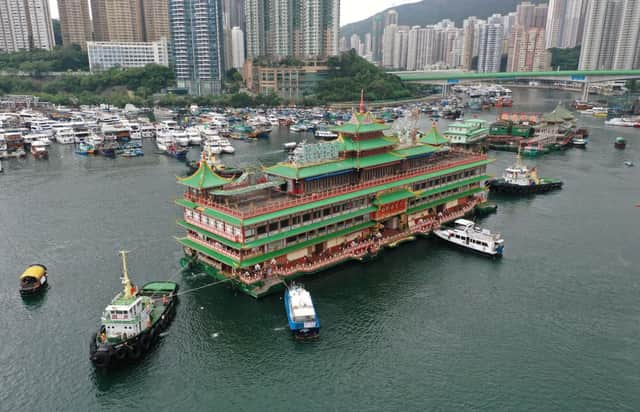

Hong Kong institution the Jumbo floating restaurant has sunk in the South China Sea just days after being towed away from the city.
The iconic eatery had served Cantonese cuisine for almost half a century, with famous faces such as the Queen, Pele and Tom Cruise boating over to it over the years.
Advertisement
Hide AdAdvertisement
Hide AdBut the restaurant had been closed for two years before its fateful final voyage.
So what led to the Jumbo floating restaurant’s closure - and how did it sink?
Here’s everything you need to know.
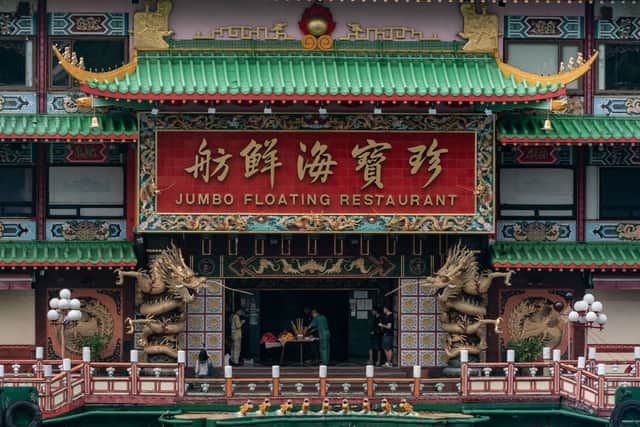

What was the Jumbo restaurant?
The Jumbo floating restaurant was one of Hong Kong’s most well-known tourist attractions.
Opened in 1976 by Macau casino tycoon Stanley Ho Hung-sun, the eatery spent most of its life in the Aberdeen fishing village area of the city.
Advertisement
Hide AdAdvertisement
Hide AdIt measured almost 80 metres (260 feet) in length, was three storeys high and had 45,000 square feet of space, with enough capacity for 2,300 diners.
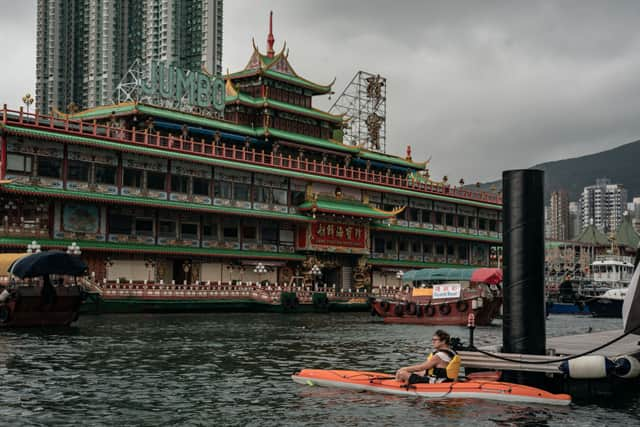

As well as serving food to more than 30 million people during its lifespan, Jumbo was also used as a film set.
Jackie Chan’s 1985 film The Protector and 2011 movie Contagion both used it as a backdrop.
In Contagion, Gwyneth Paltrow’s ‘patient zero’ character is infected by an unknown virus from a chef at Jumbo, before spreading it to the rest of the world - a plotline that foreshadowed the restaurant’s own demise at the hands of the Covid-19 pandemic.
Advertisement
Hide AdAdvertisement
Hide AdJumbo was already struggling financially in the run up to coronavirus.
According to the Financial Times, it had lost an accumulated HK$100 million (£10.4 million) since 2013.
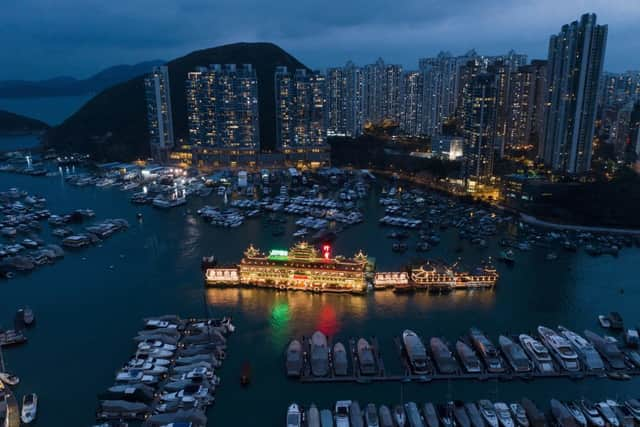

Covid-19 proved to be the final nail in the coffin for the restaurant and it closed on 3 March 2020, laying off all of its employees.
It was unable to reopen again as China has pursued a zero Covid policy that has stopped most tourists from visiting Hong Kong.
How did Jumbo floating restaurant sink?
Advertisement
Hide AdAdvertisement
Hide AdAfter attempts to sell the restaurant proved unsuccessful, Jumbo’s owners Aberdeen Restaurant Enterprises opted to tow the landmark to an undisclosed, cheaper location where the craft could undergo maintenance.
The company said it had become necessary to move it away from Hong Kong because it was costing millions of Hong Kong dollars to keep it afloat, despite it hosting no diners.
When Jumbo’s mooring licence expired on Tuesday (14 June), it was towed away from its protected berth in the Aberdeen fishing village.
It had travelled around 500 kilometres and was passing the disputed Paracel or Xisha islands in the South China Sea when, on Saturday (18 June), it encountered what was described by Aberdeen Restaurant Enterprises as “adverse conditions”.
Advertisement
Hide AdAdvertisement
Hide AdJumbo began to tip after water entered it, before capsizing and then sinking on Sunday (19 June).
The company said no-one was injured, but efforts to save the vessel had failed.
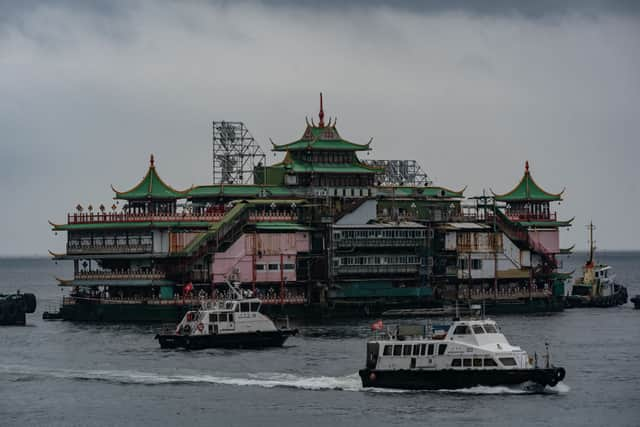

“As the water depth at the scene is over 1,000 metres (3,280 feet), [it makes it] extremely difficult to carry out salvage works,” the company said in a statement.
It added that it was “very saddened by this accident”.
Aberdeen Restaurant Enterprises also said that the vessel had been thoroughly inspected by marine engineers, hoardings had been installed, and all relevant approvals were obtained before Jumbo’s departure from Hong Kong.
“The company is now getting further details of the accident from the towing company,” the firm said.
Comment Guidelines
National World encourages reader discussion on our stories. User feedback, insights and back-and-forth exchanges add a rich layer of context to reporting. Please review our Community Guidelines before commenting.
